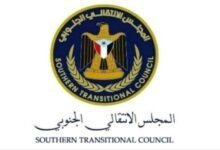A symposium in Aden the capital discusses role of women in southern journalism and their professional challenges

SMA NEWS – ADEN THE CAPITAL
Under the auspices of the Southern Transitional Council in the capital Aden, the Department of Media and Culture, in cooperation and coordination with the Syndicate of Southern Journalists and Media Members, organized in the capital Aden, a symposium entitled “The Role of Women in Southern Journalism”, with the attendance of an elite group of media professionals, journalists and those interested in women’s issues and media. This was to discuss the reality of southern female journalists and the challenges they face, in addition to reviewing the successes they have achieved in this field.
At the symposium, Aidarous Bahashwan, Head of the Syndicate of Southern Journalists and Media Members, delivered a speech in which he stressed the importance of supporting and empowering southern female journalists. He pointed out that the Syndicate is making great efforts to create a suitable work environment that accommodates female cadres and provides them with the necessary training and support to ensure their continuity in the profession.
Bahashwan added that the southern press is full of many female names that have left clear imprints on the media scene, despite the challenges they faced, stressing the need for concerted efforts between the Syndicate and media institutions to enhance the presence of women in journalism, whether traditional or digital.
For her part, the Head of the Department of Journalism and Electronic Publishing at the Faculty of Media at the University of Aden, Dr. Nawal Makish, in her intervention, spoke about the role of women in economic and societal policies, highlighting the challenges faced by southern female journalists in the past, compared to the current reality that has become more open thanks to the development of media and digital journalism.
She pointed out that women’s journalism in the south has developed significantly, as women have today become an essential part of the media scene, not only in written journalism, but also in electronic journalism and visual and audio media, which has given them a greater space to convey their voice and express their issues. Stressing that the current media climate has enhanced the presence of southern women and contributed to expanding the scope of their influence, whether through digital journalism or social media, which has given them the opportunity to reach a wider audience and convey their issues more effectively.
Makish touched on the professional difficulties that female journalists still face, such as the lack of institutional support, the lack of equal opportunities, and the social difficulties associated with society’s view of the role of women in the media, but at the same time she praised the successes achieved by southern female journalists, who have proven their ability to compete and leave clear professional marks in the media scene. And that southern women have not been satisfied with merely being in the field of journalism, but have contributed to media decision-making, and have proven their efficiency in various fields of journalism, which reflects the extent of the development of their role and influence in society.
In this context, the great media figure Nadra Abdul Quddous made an intervention in which she stressed the importance of concerted efforts to support southern female journalists and empower them in the media field, praising the prominent role played by women in southern journalism despite the challenges.. appreciating the efforts of the head of the Southern Women’s Union, Nada Awbali, in supporting women’s issues and enhancing their presence in various fields, including the media.
She also addressed in her intervention the pioneering role of southern women in journalism during the era of British colonialism, which witnessed the beginnings of women’s involvement in journalistic work, despite the strict social restrictions at the time.. explaining that many southern women broke the barrier of intellectual isolation, and were among the first to establish women’s openness to enlightenment thought, as some of them began writing under pseudonyms in local newspapers and magazines, addressing women’s issues, society and education. Over time, and with the growth of feminist awareness, these female journalists dared to reveal their real names, becoming symbols of women’s struggle for recognition of their rights to expression and community participation.
In her speech, she reviewed a number of prominent names that contributed to shaping the features of women’s journalism in the south, stressing that their efforts were not limited to journalistic writing only, but extended to field and awareness work, as they played a pivotal role in shaping the image of the educated and enlightened southern woman, who seeks to seize her place in society like her male brethren. She added that the journalistic legacy established by these pioneers continues to this day, as southern female journalists are a natural extension of that struggle, which requires more efforts to preserve the gains and enhance the presence of women in all media outlets… calling at the end of her speech to strengthen the partnership between women’s and media institutions to achieve more gains for southern female journalists. The symposium witnessed extensive discussion and positive interaction from the attendees, who stressed the importance of continuing the discussion on women’s issues in the media, praising the role played by southern female journalists in conveying the truth and conveying the voices of society with professionalism and responsibility.
At the end of the symposium, the participants approved a number of recommendations that would enhance the role of women and their presence in all media outlets, the most important of which are:
– Forming a network to advocate for female journalists in order to facilitate their access to regional and international media platforms in coordination with the Southern Journalists and Media Professionals Syndicate
– Supporting training and qualification programs for southern female journalists.
– Providing a safe and stable work environment for them.
Strengthening the role of women in leadership positions within media institutions.







